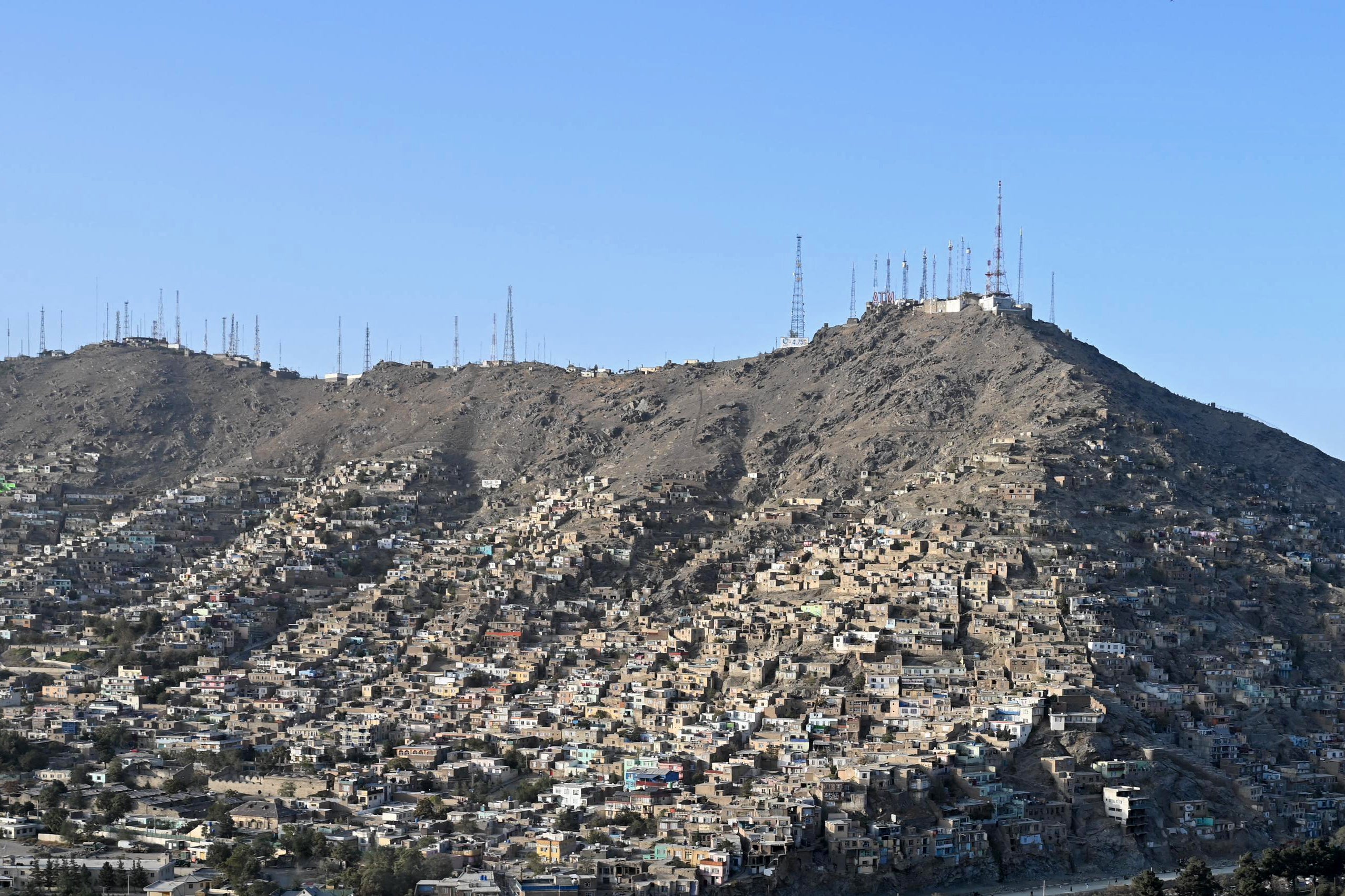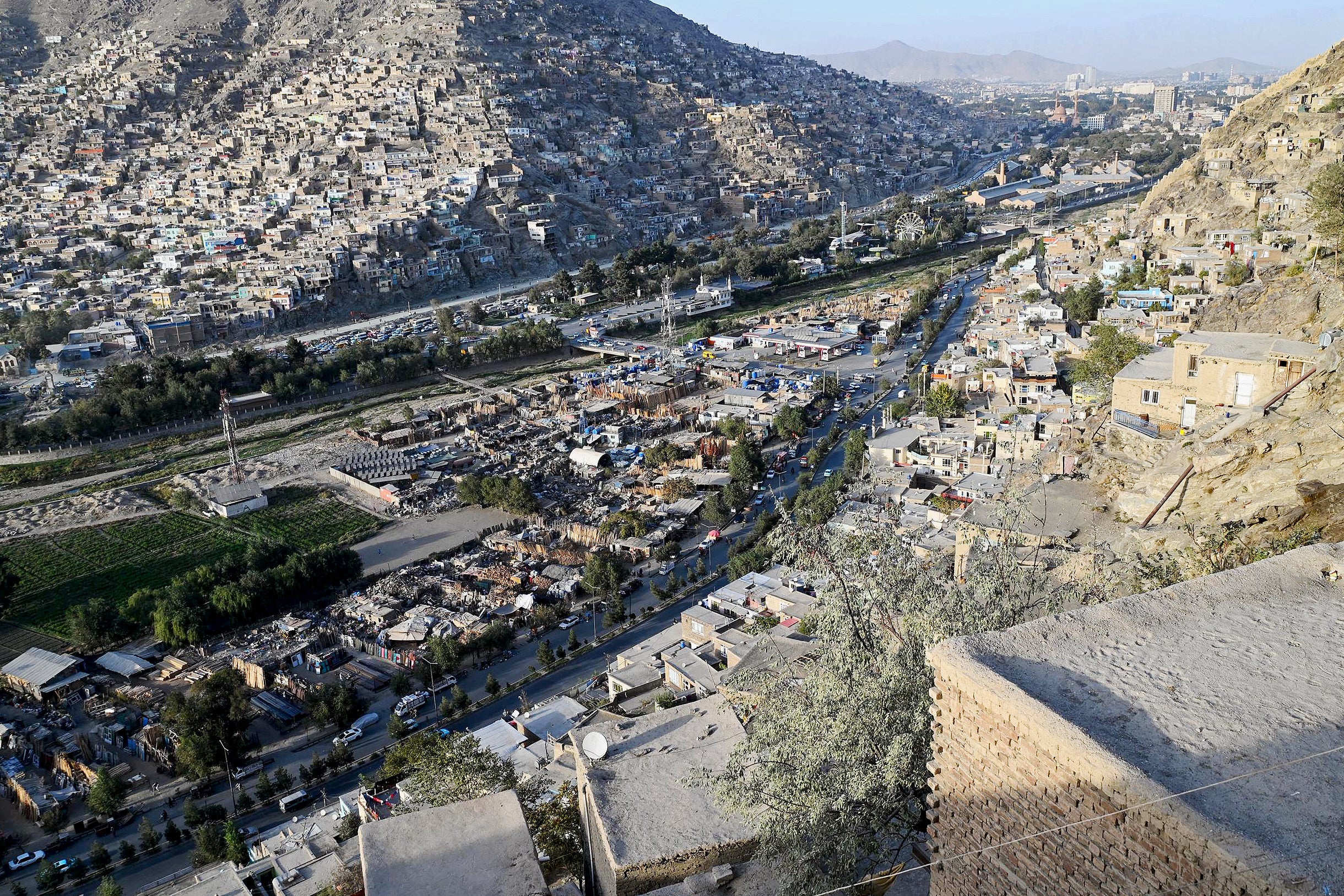The Taliban suspended internet services across Afghanistan on Monday, cutting off millions of people from the outside world.
Afghan media reported that the restriction was in line with the Taliban leadership’s decree from earlier this month to tackle online “immorality”.
The ban blocked mobile and broadband internet services, disrupted satellite television, and even affected flight operations. Flightradar24 showed that at least five flights scheduled to arrive at or depart from Kabul airport on Tuesday were cancelled.
The shutdown reportedly also affected the satellite TV broadcasts of Afghan media outlets like Kabul-based Tolo News and London-based Afghanistan International, as well as services in hospitals and government and private offices.
This is the first time that all of Afghanistan is facing a blackout of internet services under the hardline Islamist government.
Taliban supreme leader Hibatullah Akhundzada ordered a “complete internet ban” earlier this month, starting disruption in services from smaller provinces like Balkh.
“This measure was taken to prevent immorality and an alternative will be built within the country for necessities,” Haji Attaullah Zaid, a spokesperson for the Balkh provincial administration, said at the time.
The Independent made multiple WhatsApp and Telegram calls to contacts in Kabul and other cities on Monday and Tuesday morning, but was unable to get through. Messages sent on WhatsApp were not delivered either.
The Associated Press news agency reported that it was unable to contact its bureau in Kabul.

“No notice was given today, but sporadic bans here and there were rolling out over the past few weeks in parts of the country,” a UN official in Kabul told The Independent on the condition of anonymity.
“The aim, according to the de facto authorities, is to prevent vice.”
Mahbob Shah Mahbob, an Afghan journalist in exile, said there was “concern about people accessing pornographic content inside Afghanistan”, which sparked a call by senior Taliban leaders to shut down the internet to prevent “immorality”.
“They’re also concerned about how their extremist rule inside Afghanistan is being perceived by the outside world and the bad publicity,” Mr Mahbob added.
Advocacy group NetBlocks said Afghanistan was now experiencing a “total internet blackout”.

The watchdog’s live metrics showed that internet connectivity had collapsed to 14 per cent. “Afghanistan is now in the midst of a total internet blackout as Taliban authorities move to implement morality measures, with multiple networks disconnected through the morning in a stepwise manner. Telephone services are currently also impacted,” it said.
“The incident is likely to severely limit the public’s ability to contact the outside world.”
The shutdown would last until further notice, an unnamed Taliban official told the BBC.
“The Taliban’s internet ban is dragging Afghanistan into the abyss. A pariah regime has severed 40 million lives from the world, with catastrophic consequences, crushing daily life, and suffocating women most of all,” Habib Khan, founder of Afghan Peace Watch, said.
For thousands of Afghan women and girls, access to the internet was a last resort for continuing their education after the Taliban banned them from attending schools and universities beyond the sixth grade.
The Taliban viewed the fact that women and girls were still able to access online courses as a challenge to its authority, said Ahmad Zia Saraj, who served as national intelligence chief under the previous democratically elected administration of Ashraf Ghani.
He told The Independent the group had a number of reasons to think it would benefit from severing the internet, including suppressing critical conversations and media coverage around its regime.
But perhaps most importantly, he said the Taliban’s senior leadership was concerned about being tracked by the West via their smartphones.
“Some key figures of the Taliban and other terrorist groups are afraid that they can be tracked through smartphones and the internet, hence they are gradually dissuading the usage of smartphones by Afghans,” said Mr Saraj, visiting professor at the King’s Centre for the Study of Intelligence, part of King’s College London.
“Usage of smartphones and the internet remains one of the top security concerns for the Taliban leadership. As they bring in more and more high-profile terrorist targets from around the world they fear that Western powers use technology to trace them, so they just want to alleviate that tension,” he told The Independent.
The internet shutdown will further distance the Afghan population from the rest of the world, says Abdullah Khenjani, head of the political bureau of the National Resistance Front of Afghanistan, a rebel group that has resisted the Taliban’s control of the country.
Perversely, this comes at a time when the Taliban is courting international recognition for its de facto government, as well as appealing for international aid after a devastating earthquake.
“This serves as yet another illustration of the Taliban's backwardness and anti-intellectualism,” said Mr Khenjani. “The regime aims to restrict the flow of information and sever the connection between imprisoned Afghans in the country and the outside world.”
Taliban frees American citizen after Qatari mediation
Teenage boy miraculously survives 90-minute flight hiding in plane’s landing gear
British couple held in Afghanistan call their release by Taliban ‘a mystery’
All the ways the Taliban are restricting lives of women in Afghanistan
Commonwealth releases damning final report into fairness of Pakistan election
Shakib Al Hasan barred from Bangladesh team for wishing Sheikh Hasina happy birthday







